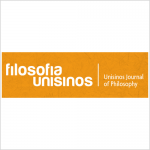Capitalism and secularization
Vol 12, No 2 (2011) • Filosofia Unisinos - Unisinos Journal of Philosophy
Autor: Fabián Ludueña Romandini
Resumo:
This paper sets forth the thesis that Walter Benjamin’s fragment, Capitalism as religion (written in 1921), should be understood as a polemical reflection upon the notion of secularization in contrast to the traditional views proposed by Max Weber and Ernst Troeltsch. Benjamin sees the capitalism system, in all its components, as a new kind of religion that fulfils and at the same time surpasses its theological heritage. Capitalism, according to Benjamin, expresses its profound theological spirit through the “bank notes”. Taking these theoretical suggestions as a point of departure, this article undertakes a genealogical investigation of the origin of money as a sacramental sign. In order to do so, we discuss the ancient and medieval theory of sacramentum as the first conceptual laboratory used by Western institutions to think about the performative value of signs. Finally, we consider, in a critical way, how these philosophical and theological reflections are partially present in Karl Marx’s theory of money, which has many elements in common with Benjamin’s ideas about the same problem.
ISSN: ISSN: 1984-8234
Texto Completo: http://revistas.unisinos.br/index.php/filosofia/article/view/fsu.2011.122.01
Palavras-Chave: Benjamin,secularization,capitalism,sacramentu

Filosofia Unisinos - Unisinos Journal of Philosophy
The journal Filosofia Unisinos - Unisinos Journal of Philosophy is published once every four months by Universidade do Vale do Rio dos Sinos.
Articles must be original, unpublished, and not under consideration for publication anywhere else and can be written in Portuguese, English or Spanish
Filosofia Unisinos - Unisinos Journal of Philosophy prints articles, translations and critical book reviews. It also reprints papers that are considered fundamental to the area when authorized written permission is given by the original publisher.
